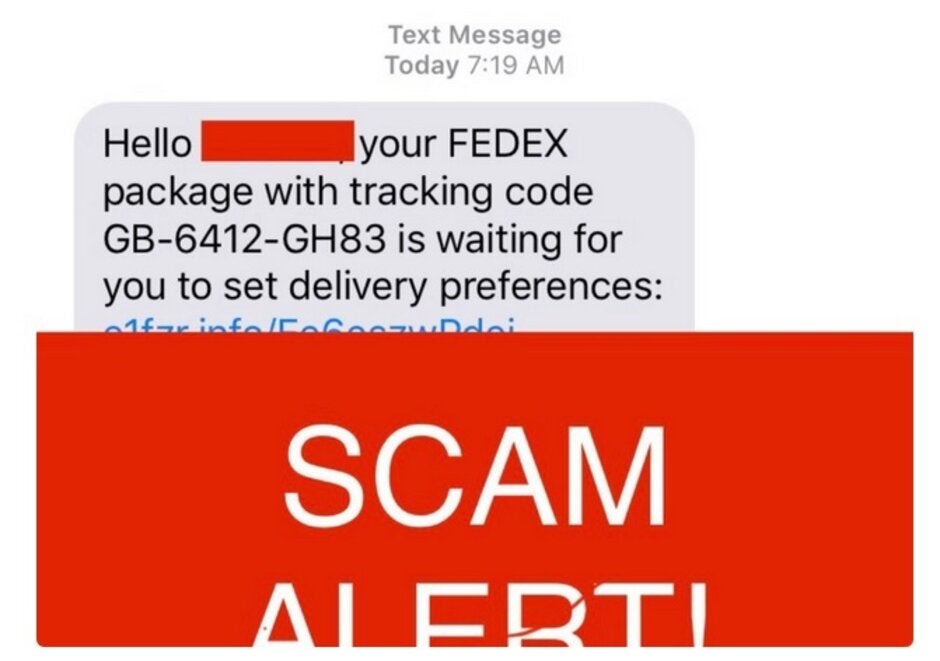If you don't want to be ripped off, watch out for a text message from this company

ABC News is warning mobile device users about a scam that uses a phony text message to steal personal information from users. The text appears as though it comes from delivery services company FedEx and includes a bogus tracking number and a prompt requesting that the user choose his "delivery preferences." Clicking on that link will take the user to a fake website that asks for personal and financial information that could be used to clean out his bank account.
In a statement to ABC News, FedEx said, "We are committed to protecting the security and integrity of our network. While there is no foolproof method to prevent the FedEx name from being used in a scam, we are constantly monitoring for such activity and work cooperatively with law enforcement." The shipper added, "FedEx does not send unsolicited text messages or emails to customers requesting money or package or personal information. Any suspicious text messages or emails should be deleted without being opened, and reported to abuse@fedex.com."
FedEx also shared a list of red flags to look for that often are indications of a scam. These include receiving an unexpected request for additional funds to get a package delivered. Other variations of the scam may ask for your social security number or a bank account number. Also, be on the lookout for links to misspelled website addresses or URLs with slightly "altered" names. For example, in this case, a link to fedx.com or even fed-ex.com should raise suspicion considering that the real address is fedex.com. In the same vein, texts with many spelling or grammatical errors or too many exclamation marks are most likely fake. Having said that, we once got a text message full of spelling and grammatical errors from Verizon and it turned out to be legit!

Watch out for a bogus text message from FedEx that is part of a scam to steal your money
Another red flag to watch for is when a text message makes an immediate demand for action. For example, a message that warns you that your account might be suspended or turned off right now without an immediate payment cannot be trusted. If you're not sure if a message you've received is legitimate, contact the company before you take any action.










Things that are NOT allowed: